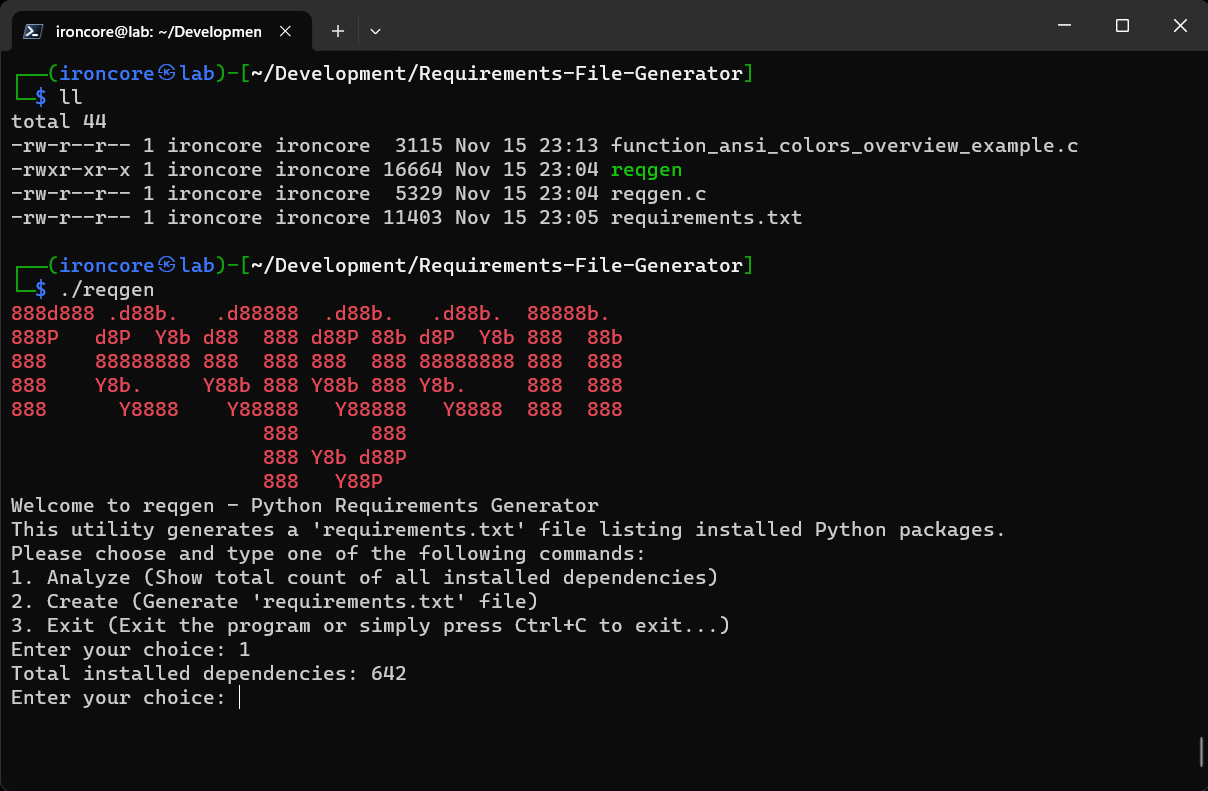"reqgen" is a command-line utility designed to simplify the management of Python project dependencies by automating the generation of a requirements.txt file.
Managing project dependencies in Python can be complex, especially when working on multiple projects or collaborating with a team.
"reqgen" streamlines this process by offering...
Effortless Dependency Tracking:
View, analyze, and create/update a requirements.txt file effortlessly.
Consistency Across Environments:
Ensures consistent dependency installation across different development environments or deployment stages.
Time-Saving Automation:
Automates the process of listing installed Python packages, reducing manual efforts and potential errors.
Simplified Replication:
Facilitates replicating projects by specifying the exact set of dependencies and versions.
reqgen aims to provide a convenient interface for developers, making it easier to manage, track, and share project dependencies, enhancing overall development efficiency.
**View Dependencies**:
Analyze installed packages and their counts in the Python environment.
Generate 'requirements.txt':
Create or update a requirements.txt file listing all installed packages.
Effortless Management:
Easily replicate project environments by sharing or using the requirements.txt file.
To compile and use reqgen, follow these steps:
-
Clone the repository:
git clone https://github.com/HeimSec/reqgen.git cd reqgen -
Compile the code:
gcc -o reqgen reqgen.c
Run the executable reqgen:
./reqgenAnalyze: Displays the total count of installed dependencies.
Create: Generates a 'requirements.txt' file with installed Python packages.
Exit: Closes the program.
--ansi_colors or -c: Displays the eastereg that output all possible ANSI color constants also wich one used in the program.^^
Contributions and feature requests are welcome!
Please feel free to open an issue or submit a pull request.
This project is licensed under the MIT License.
